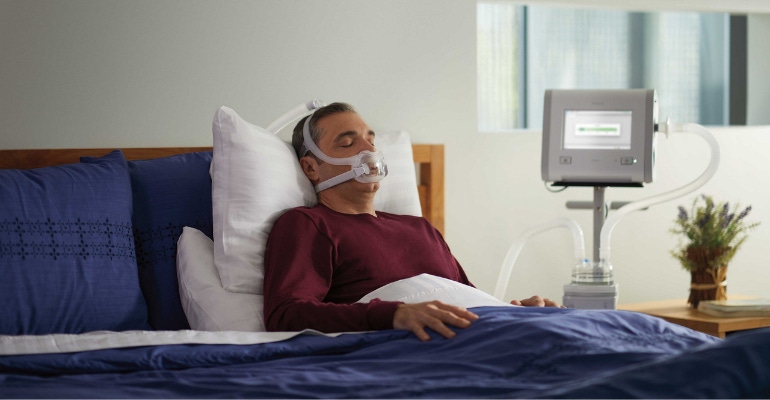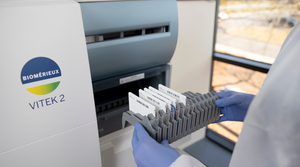Philips Recall Woes Continue
The device maker faces a recall of its Trilogy Evo Ventilator due to extended environmental contamination exposure potentially affecting the devices air path.

Philips woes continue as they face yet another Class I voluntary recall for its Trilogy Evo ventilator in recent months. The device maker is instructing users to change filters more frequently to prevent device malfunction. Of note, use of the filter was previously seen as optional by the company.
Philips initially notified FDA in April of a potential issue with the ventilator family where extended environmental contamination exposure could affect the devices air path. “Environmental debris may accumulate on the internal machine flow sensor causing partial occlusion with may impact accurate delivery of pressure, volume, or flow,” according to FDA.
If not addressed, a malfunction caused by the issue, according to the recall, could result in patient harm up to hypoxemia. Currently the problem could affect 118,000 devices worldwide.
In March, Trilogy Evo ventilators were also recalled under Class I designation for a separate internal sensor issue that could lead to under-delivery of oxygen. “The accuracy of delivered oxygen may deviate below the required tolerance of 5% from setpoint when providing high concentration oxygen therapy,” according to the recall notice. “Additionally, if equipped, the internal FiO2 sensor may indicate a value higher than the device is actually delivering. This may lead to under delivery of oxygen.”
Philips nightmare last few years have been rife with recall issues. In 2021, the company began the largest ever recall of its CPAP and BiPAP machines. The recall, which included about 5.5 million devices in need of repair or replacement, stemmed from the fact that the foam used to dampen the machines sound could degrade and emit small particles. These particles could release gas that may be toxic or carry cancer risks.
Since the initial recall, the company has seen its reworked machines from the initial 2021 recall also included in their own Class I recall. According to FDA, specific reworked DreamStation devices were assigned incorrect or duplicate serial numbers during initial programming. This duplication could cause therapy to be delivered using the wrong prescription or factory default settings. Additionally, it may fail to deliver any therapy at all. There is no warning or indication to the user that the DreamStation is not working the way the doctor intended or prescribed, FDA said.
In November 2022, Philips said that reworked respirators from the 2021 recall have two potential issues, the separation of the new silicone sound abatement foam from the plastic backing which could block the air inlet and lower the inspiratory pressure and trace amounts of particulate matter that have been found in the air pathways of some reworked ventilators.
And the years-long recall process, as well as US Department of Justice discussions, and a French investigation has certainly taken its toll on the Amsterdam, Netherlands-based company. Since the beginning of the recall, Philips has seen a 70% plunge in its market value and began 2023 laying off 6,000 jobs. The layoff announcement came just a few months after the company had already cut 4,000 jobs.
Of note, the company said it has produced over 98% of the new devices and repair kits needed to replace the CPAP and BiPAP machines, as well as already repaired and returned more than 2.3 million devices to consumers and distributors.
As for now, it remains to be seen whether there’s light beginning to flicker at the end of Philips very long regulatory tunnel.
About the Author(s)
You May Also Like



